National Care Service - complaints: findings summary - easy read
This report sets out findings we have gathered through research and co-design that relate to complaints and redress.
Part 3
Complaints landscape and processes
The Crerar review

The Crerar review was done in 2007.

The Crerar review looked at the:
- regulations
- audit
- inspection, and
- complaints handling
of public services in Scotland.
Regulations are rules made by an authority, like the government.

Audit means checking the finances of a group.

The review also found that making complaints can be hard.

After this review, work has been done to make the complaints process easier.
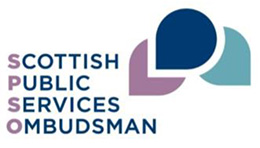
The Scottish Public Services Ombudsman (SPSO) made standard ways of handling complaints for most public services in Scotland.
Some of these include:

- a common definition of what is a complaint
- a focus on how to fix a complaint
- a process to handle complaints in a fixed time. This process has 2 parts

The SPSO shared a Statement of Complaint Handling Principles.
This was approved by the Scottish Parliament.

Click on this link to find the Statement of Complaint Handling Principles.
Complexities in the landscape and processes

A lot of work has been done to make it easier for people to make complaints.

But we found that the way to make complaints can still be difficult for some people.

There are different ways to make a complaint about
- social work
- social care or
- a health service

There are different ways to make a complaint about:

- ‘fitness to practice’ for an individual worker
- the quality of care
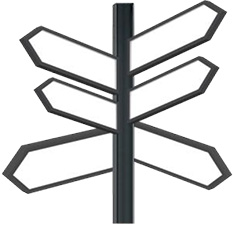
But people using these services are not always clear what way to use to make a complaint.
And sometimes complaints can be about more than one thing.

This means people can get confused about how to make a complaint.

Also, the SPSO and the Care Inspectorate both handle complaints about social care provided by local councils.
People might be confused about who to contact first about their complaint.
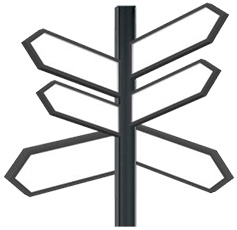
Care services handle complaints in different ways.

For example, social care services given by local councils must follow the process given by the SPSO to handle the complaints.
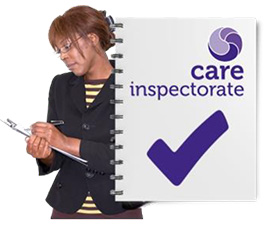
But private social care services do not have to follow the process given by the SPSO to handle complaints.
Private social care services have different rules they have to follow.

According to the rules, the complaints process of the private social services must be easy to use by all.
Click on this link to know the rules.
The private social care services must:

- share a written copy of their complaints process with people accessing the service

- reply to complaints within 20 working days

For some types of complaints, people must fully use the service’s complaints process first.
Only then people can complain to an independent body.

And for other types of complaints, people can complain directly to an independent body.
This includes complaints about the quality of social care.
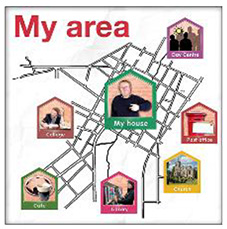
In different local areas, complaints about integrated services are handled in different ways.
Integrated services are linked health and social care services.

Some of the 31 Health and Social Care Partnerships handle complaints about the linked services provided by them.
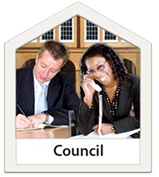
But some others tell people that the complaint must be made to the health board or local council.
Independent Review of Inspection, Scrutiny and Regulation of Social Care in Scotland

In September 2023, the Scottish Government published the Independent Review of Inspection, Scrutiny and Regulation of Social Care in Scotland (IRISR).

Click on this link to see the IRISR report.

The IRISR review was to check how social care support services could be better for people who use them.

Some of the main findings from the IRISR review are:

- people may need help to go through a complaints process
- people may need help to share their feedback

- people may not have time to make a complaint
- people may feel under pressure to follow a complaints process during tough situations
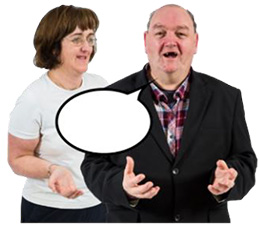
The IRISR review made two suggestions about complaints. These are:
- people making complaints should be able to get independent advocacy to help them to make sure their rights are respected

- public information about complaints processes should be easy to understand, and the processes should be easy to use

The IRISR review made 38 suggestions. Scottish Ministers have accepted all the suggestions.
Numbers and types of care complaints
Complaints received by the Scottish Public Services Ombudsman
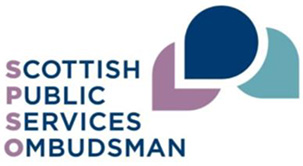
Every year, the SPSO shares information with the public about the complaints they receive, including:

- the sector
- the subject of the complaint
- the result of the complaint, and
- the local area

For the year 2022 to 2023, the SPSO received close to 3,500 complaints.

Click on this link to go to the SPSO website to find the published complaints data.
From all these complaints:

- 34 out of every 100 complaints were about the health sector
- 30 out of every 100 complaints were about local councils

- 4 out of every 100 complaints were about linked health and social care

For year 2022 to 2023, the most common complaints about health care were:

- About 760 complaints were about treatment or finding of illness

- About 140 complaints were about how staff spoke to people, how information was shared with people, or how their data was protected

- 78 complaints were about delays, cancellations or waiting lists
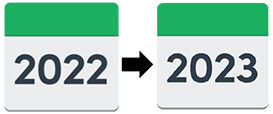
For year 2022 to 2023, the most common complaints about health and social care partnership social work were:

- 18 complaints were about child services or family support

- 13 complaints were about how information was shared

- 10 complaints were about community mental health services
Complaints received by the Care Inspectorate
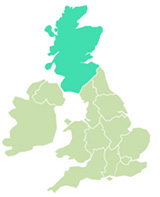
There are more than 11,000 registered social care services in Scotland.
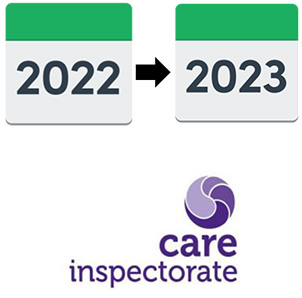
The Care Inspectorate shared the complaints they received from year 2022 to 2023 with the public.

Click on this link to find the complaints data published by the Care Inspectorate.
The most common complaints about services were:
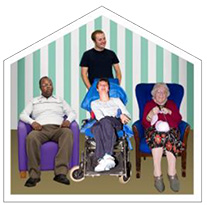
- About 2,800 complaints were about care homes

- About 1,000 complaints were about day care for children
- 985 complaints were about housing support and care at home
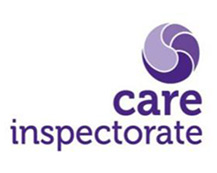
The Care Inspectorate upheld most of these social care complaints. This means they found a failing or that something had gone wrong.

The Care Inspectorate found something had gone wrong in the complaints they looked at about:

- healthcare (635 complaints)
- how information was shared (299 complaints)
- the wellbeing of people (261 complaints)

Only 12 out of 100 registered services are care home services.
But almost half of the total number of complaints made to the Care Inspectorate were about care homes.
Complaints received by the Scottish Social Services Council

Every year, the Scottish Social Services Council (SSSC) publishes data on ‘fitness to practice’ concerns in their report.

Click on this link to find the report for 2022-23 published by SSSC.

From 2022 to 2023, they:

- got close to 3,600 ‘fitness to practice’ concerns

- resolved close to 4,000 concerns and lowered the number of open cases
- got 6 concerns from the workforce. In 4 out of these 6 concerns, they opened a ‘fitness to practice’ case.

Workforce means the people who work to provide services.
Review of published adult social care complaints data

We looked into the adult social care complaints data published by:
- the 32 local councils in Scotland
- integration joint boards
- health and social care partnerships

We looked at the websites of all local authorities, integration joint boards and health and social care partnerships.
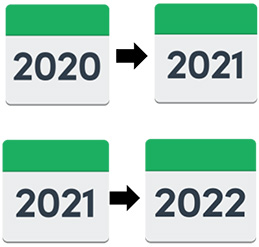
We looked to find data for the year from 2020 to 2021 and from year 2021 to 2022.
We only looked into adult social care data.

We did not ask for any complaints data that was not published.

We also did not include data on ‘fitness to practice’ concerns about individual workers.
From the websites, we found that:

- it was hard to find details of complaints on health and social care partnership and local council websites

- many times, the reports were called different things
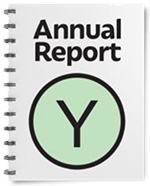
- sometimes details of complaints was published in an annual report or written in the notes of a meeting

- for some local councils, there was no complaints data on their website, or on the integration joint board or health and social care partnership website

- some complaints data did not have much detail. For example, there was data only about the total number of complaints received

- there were some good examples where details of complaints were studied and shown clearly
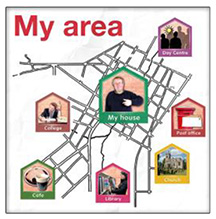
We also found that the adult social care details of complaints were shown and shared in different ways in different local areas.
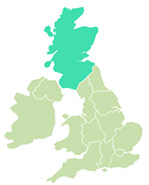
Because of these different ways, it was not possible to know the total number of complaints in all of Scotland.

It was also not possible to find any common patterns through the published data.
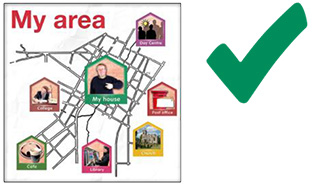
We found that the way adult social care complaints are reported could be done better in local areas.
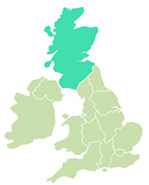
This could help in understanding all the details of complaints across Scotland.

We are using all these findings to improve ways of getting and recording details of complaints for the National Care Service (NCS).
Evidence review of good practice in complaints handling

We looked at good examples of handling complaints.
We plan to learn from these examples to design a new complaints service for the NCS.

We looked at examples from:
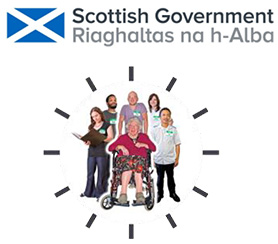
- health care
- social care
- government process
- other public sector services
We found that it should be easy to make a complaint.

To do so, the complaints service should be:
- known to everyone

- easy to use
- have clear ways to speak or write to the service

We also found:

- people from advocacy services can help people with different needs to use complaints services

- it is important to tell people about what is happening with their complaint

- we should learn from complaints to improve services

- complaints against staff can create stress for the staff member. Staff should be given support

- we should find better ways to look at complaints data. This will help to show how complaints and feedback can make services better

- sharing examples of how complaints help to make things better can help people to build trust in the complaints process
Contact
Email: NCScommunications@gov.scot
There is a problem
Thanks for your feedback